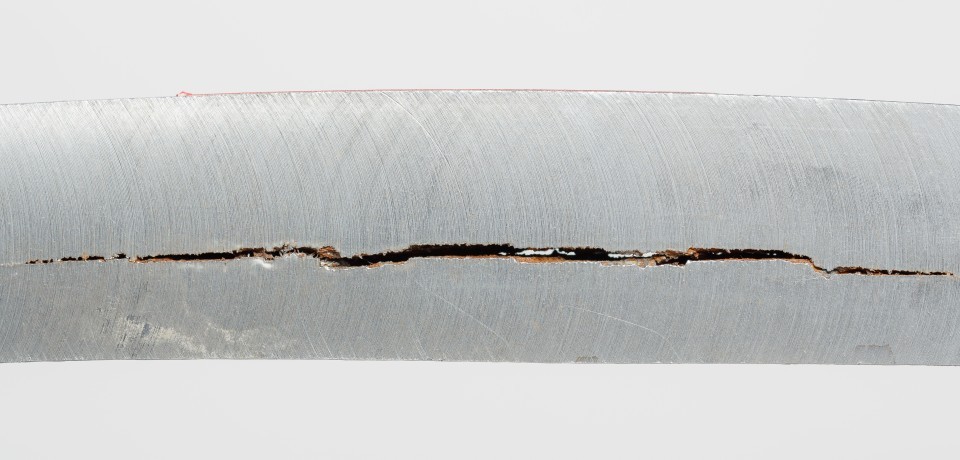Free UK Shipping over £100
Fast Shipping
Worldwide Shipping
Technical Sales Team

Understanding Hydrogen Embrittlement and How It Impacts Your Operations
Hydrogen is often hailed as the fuel of the future. It's already making its mark across industries like oil and gas, chemicals, and steel - and it’s set to play a major role in the shift to cleaner energy. But alongside its potential, hydrogen brings its own engineering challenges. One of the most significant is hydrogen embrittlement.
So, what exactly is hydrogen embrittlement? Why does it matter? And more importantly, what can be done to prevent it in your systems? Let’s break it down.
What Is Hydrogen Embrittlement?
Hydrogen embrittlement (HE) is a material failure phenomenon that affects metals exposed to hydrogen-especially under high pressure. It causes a loss of ductility and can lead to brittle cracking or sudden failure, even in high-strength materials.
In sectors like oil and gas, hydrogen storage, and chemical processing, where hydrogen control valves and pipelines are critical, this risk must be actively managed.
Why Hydrogen Embrittlement Matters in Industry
If left unaddressed, hydrogen embrittlement can result in:
Cracked components under normal loads
Unplanned shutdowns
Expensive repairs or replacements
System-wide safety hazards
Hydrogen is a small, mobile atom that can easily diffuse into materials. Over time, this weakens their structure from within. This is particularly dangerous in high-pressure hydrogen systems, hydrogen fuel infrastructure, and industrial flow control applications.
Key Warning Signs of Hydrogen Embrittlement
Spotting HE early is crucial. Be alert for:
Unusual or premature cracking
Surface blistering or flaking
Sudden failure of load-bearing components
Test failures under normal operating pressures
Using non-destructive testing (NDT) methods like ultrasonic inspection, magnetic particle testing, or sustained-load testing can help identify early-stage damage.
How to Prevent Hydrogen Embrittlement: Engineering Solutions That Work
Material selection is your first and most important line of defence. Common choices include:
316L and 304L stainless steel – Lower carbon content means less susceptibility to cracking.
Nickel-based alloys (e.g., Inconel®, Hastelloy®) – Highly resistant to hydrogen degradation.
Titanium alloys – Excellent mechanical strength and hydrogen resistance.
Specialised coatings – Electroless nickel plating or ceramic coatings reduce hydrogen diffusion into metal surfaces.
For industrial hydrogen valves, always specify materials certified for high-pressure hydrogen environments.
Hydrogen valves should be engineered to handle hydrogen environments. Look for:
Smooth flow paths and radius transitions to reduce stress concentration
Robust housing and wall thickness to manage high pressures
Precision sealing systems that prevent leaks and exposure
Stress points, welds, and threaded joints are common failure locations-so the fewer, the better.
Some of the best prevention happens after machining and welding include:
Post-Weld Heat Treatment (PWHT) – Relieves internal stresses that make metal more vulnerable.
Hydrogen baking – Drives out any hydrogen introduced during manufacturing or surface cleaning.
Make sure valves are processed according to ISO 11114-4 or other hydrogen service standards.
Barrier layers prevent hydrogen from reaching the metal’s surface in the first place. Options include:
PTFE, ceramic, or epoxy coatings on internal valve surfaces
Elastomeric linings in contact with gas flow, depending on application
These coatings are especially helpful in gas chromatography, electrolysers, and fuel cell test rigs, where hydrogen purity and pressure are high.
Valves in hydrogen service should be inspected more frequently. Best practices include:
Routine non-destructive testing
Visual inspections for signs of surface damage or material fatigue
Valve testing protocols at working pressure and temperature
A proactive maintenance plan not only increases uptime but helps meet HSE compliance and ISO quality requirements.
Why Valve Selection Is Critical for Hydrogen Applications
Your valve is one of the few mechanical devices in direct, continuous contact with pressurised hydrogen. Selecting the wrong one can compromise your entire system.
When sourcing hydrogen-compatible valves, ensure:
Material certificates meet hydrogen service criteria
Design includes fatigue- and crack-resistant features
Testing includes pressure cycle testing under hydrogen conditions
The supplier offers technical support for your use case
At Fine Controls, we offer a wide selection of valves for hydrogen systems, including those rated for green hydrogen projects, hydrogen refuelling, and H2 electrolysis plants.
FAQs on Hydrogen Embrittlement and Valve Selection
Q: Is hydrogen embrittlement the same as corrosion?
No. Corrosion involves chemical degradation, while embrittlement involves hydrogen atoms causing metal to crack from within.
Q: What standards apply to valves used in hydrogen service?
Look for ISO 11114, ASME B31.12, and API 6A/6D for hydrogen piping and valve systems.
Q: Can hydrogen embrittlement affect stainless steel?
Yes. Even stainless steel can embrittle under the right conditions. Low-carbon variants like 316L offer improved resistance.
Speak to a Hydrogen Valve Specialist
At Fine Controls, we help engineering teams and buyers specify the right hydrogen-ready valves for demanding environments. Whether you're building a new plant or retrofitting existing infrastructure, we can help you avoid hydrogen embrittlement from the ground up.
Call us on 0151 343 9966 to speak to a specialist today, or explore our range of hydrogen-safe valves online.
Contact our technical sales advisors here.
Our team of engineers are fully equipped to provide bespoke system design and manufacture.
This process involves specifying, procuring, calibrating and maintaining instrumentation and control systems for industrial and commercial process control applications.
Call our technical sales team for advice

This site uses cookies to monitor site performance and provide a more responsive and personalised experience. You must agree to our use of certain cookies. For more information on how we use and manage cookies, please read our Privacy Policy.